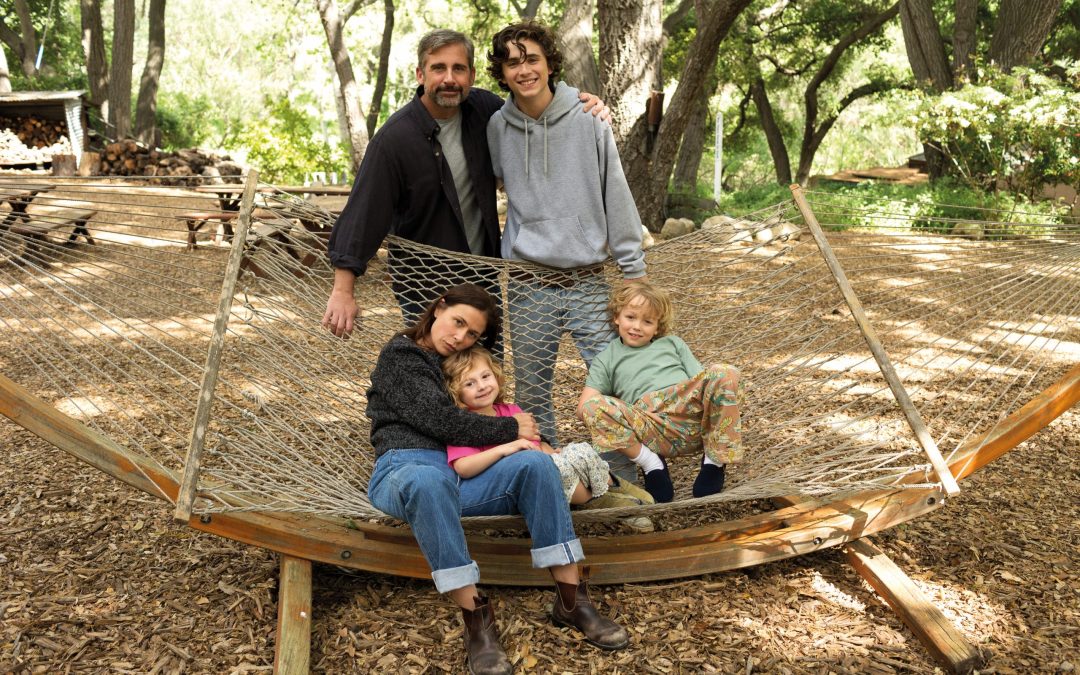Beautiful Boy: interview with author David Sheff: ‘When your child is addicted to drugs…’
David Sheff wrote about the struggle of dealing with his son Nic's methamphetamine addiction in his 2008 memoir. Now Sheff's story has reached Hollywood. 'Beautiful Boy', the film starring Steve Carell as David and Timothee Chalamet as Nic has been released this week. Here, we talk to David Sheff about supporting those you love through recovery from drug addiction

How did you feel when you saw the film portraying your life on the screen?
I was devastated. We lived it of course and wrote about it, but it was different watching it. It was heartbreaking watching my son go through what he went through and being reminded of how hard it was the family. It brought it all back. That devastation quickly shifted to an indescribable gratitude because I was reminded how lucky we are – especially at a time when so many parents are losing their kids; every day in the states 200 people die of overdose.
And finally, I felt gratitude also because I saw and felt how the movie might provide comfort for other families going through what we went through – those with an addicted loved one. I think it affirms their experience – the rollercoaster, the pain, but also the hope.
How difficult did you find it to write a memoir about the addiction of your son?
I wrote throughout the years Nic was actively using and our lives were in hell, but I didn’t think about publishing it. I wrote to try to get through nights I was terrified because I didn’t know where my son was. Writing was a way to try to make some order out of the chaos in my brain. It did help, though only a little.
When Nic was finally doing well I decided to use those raw notes and write first an article for the New York Times Sunday Magazine and then the book Beautiful Boy. As it was watching the movie, it was incredibly painful to relive what we’d gone through, but yes, it was also cathartic, a kind of like therapy.
What advice would you give to any other parent who suspects that their child is addicted to drugs?
Don’t do what I did, which is deny what was happening. I was told, “Nic’s a great kid. He’s smart. He’ll be fine.” But of course, he wasn’t. So I say pay attention to your child and if you notice changes – they become isolated, secretive, and otherwise seem to be struggling – don’t wait to ask for help from professionals. It’s confusing because kids inevitably change as they get older and go through different stages of adolescence. However, as a doctor told me, “If you think there’s a problem there’s probably a problem.” The only way you know is by consulting experts, whether counsellors, psychologists or psychiatrists.
It’s important to know that drug use and addiction are often symptoms of other problems, so we don’t only want to look out for signs of drug use. We also want to look for signs that our kids are struggling in other way – with school, if we wonder if they may have depression or another psychiatric problem; if they are hurting because of social or family circumstances. We’re reluctant to ask for help because we’re afraid that someone will detect a problem, but it’s the only way we can intervene before it gets worse.
What was the best advice that someone gave you when you were going through supporting your son in recovery?
I heard all sorts of contradictory advice, but a theme was about tough love – that I had to stand back, close the door, hang up the phone, stop trying to help him, because (many people, including so-called experts) told me, Nic had to hit bottom before he would embrace treatment. Those who helped most told me to reject those messages, because we DON’T WANT TO close the door on someone who is suffering with a serious illness. We want to practice love, not tough love, and do whatever we can to keep them safe and get them the help they need.
Is there any advice you would give to parents about helping their children to manage anxiety and darker feelings from an early age?
Yes, we parents think we’re supposed to have all the answers, but we can’t. We have to rely on people trained to help our kids deal with whatever they’re struggling with – including anxiety and darker feelings that may be a sign of depression or another serious problem. Even as we take our kids to see specialists, we also want to learn how best to have open communication with our kids so they’ll be comfortable talking to us about what’s going on their lives and how they’re feeling.
Parents often think we know the answers – we have so much wisdom to impart – and we talk and talk but forget to listen. Learning to listen – really listen – is the most important part of communicating with our kids. We want an open dialogue. We want them to feel safe so they can be open with us even about the most sensitive subjects – sex, drugs, bullying (including cyber bullying), scary thoughts. Sometimes we need help to improve communicating with our kids – we can get it by workng with psychologists or learning from books like those about parent effectiveness training (PET). Finally, we’re role models and our moods affect our kids, so we have to pay attention to how we’re doing and face our challenges ourselves.
I’ve two main pieces of advice: Don’t ignore problems. And ask for help.
Beautiful Boy is in cinemas now.








